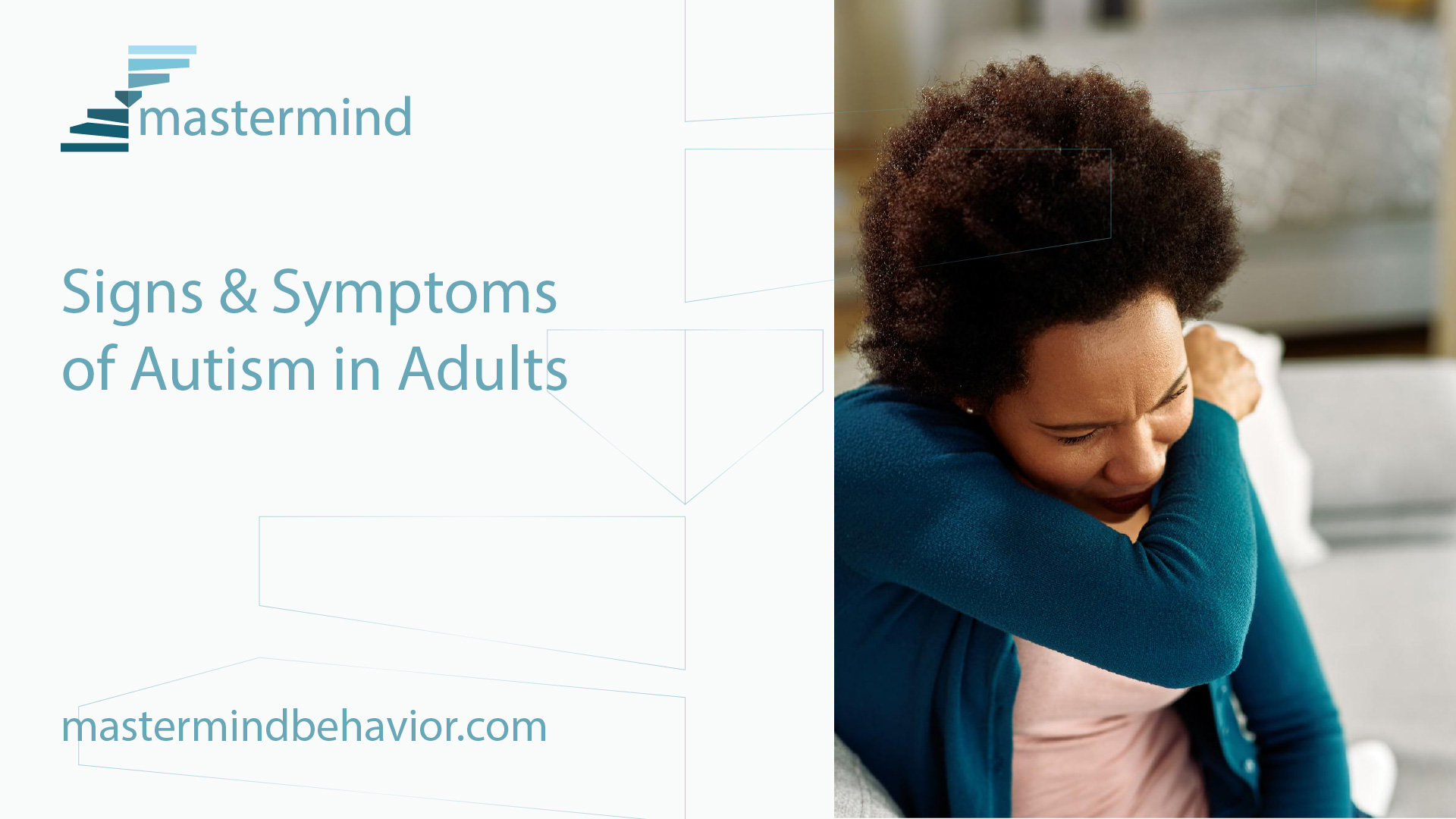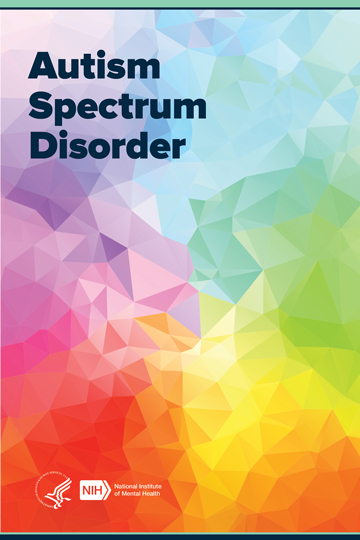Top indicators your family needs Autism Behavioral Therapy
Top indicators your family needs Autism Behavioral Therapy
Blog Article
Recognizing the Impact of Behavioral Autism on Day-to-day Live and Social Communications
You could not recognize how deeply behavioral autism affects day-to-day life and social communications. People on the spectrum typically navigate a globe filled up with communication hurdles and sensory overload. These obstacles can lead to irritation and seclusion, affecting their connections and overall health.
Specifying Behavioral Autism and Its Features
Behavior autism, commonly referred to as autism range disorder (ASD), incorporates a series of conditions identified by challenges in social communication, communication, and recurring habits. You might observe that individuals with ASD often battle to interpret social signs, which can result in misconceptions in conversations. They might discover it tough to establish eye get in touch with or participate in small talk, making social circumstances really feel overwhelming.
Interaction difficulties can materialize in numerous ways, from postponed speech growth to a choice for making use of fewer words. Repeated actions, such as hand-flapping or rocking, can work as coping devices to manage anxiety or sensory overload. These characteristics can exceptionally influence day-to-day live, making it vital for you to recognize and support those with ASD. By identifying these traits, you can promote a setting that advertises approval and urges effective communication, assisting people with autism thrive in their daily interactions.
The Range of Autism: Comprehending Irregularity in Habits
Autism range condition (ASD) isn't a one-size-fits-all diagnosis; it varies widely among individuals. You may discover that some people with ASD display moderate signs, while others may deal with extra significant difficulties. This variability can materialize in habits, rate of interests, and sensory level of sensitivities. You might encounter people that are highly verbal and engage conveniently in discussions, while others may choose solitary activities or connect non-verbally.
Moreover, the way individuals with ASD react to sensory input can vary greatly; some may be overwhelmed by loud sounds or brilliant lights, whereas others grow in stimulating environments. The spectrum also consists of distinctions in social interactions; some individuals might struggle to interpret social signs, while others browse social settings with loved one simplicity. Recognizing this variability is vital, as it helps you appreciate everyone's special experience and tailor support to their details requirements, cultivating a much more comprehensive atmosphere for every person.
Interaction Difficulties Encountered by Individuals With Autism
When you engage with people on the autism spectrum, you may discover their special communication challenges. They often deal with difficulties with both verbal and nonverbal signs, which can affect their social communications. Understanding these obstacles is essential for promoting much better links and support.

Verbal Communication Problems
Several individuals on the autism spectrum experience spoken interaction problems that can significantly impact their daily communications. Your tone, speed, or quantity may not line up with social expectations, causing others to misunderstand your purposes. Acknowledging these difficulties can help you and your assistance network establish methods to improve communication and foster better links with others in your everyday life.
Nonverbal Communication Obstacles
Verbal interaction isn't the only obstacle people on the autism spectrum face; nonverbal communication barriers can be simply as significant. These challenges can lead to misunderstandings or false impressions of social cues, making interactions feel frustrating or complex. By attending to nonverbal interaction, you can locate strategies to improve your social experiences and improve your general high quality of life.
Social Interaction Effects
Social communications can often really feel overwhelming because of the distinct interaction difficulties dealt with by individuals with autism. You may battle with analyzing social hints, making it hard to understand mockery or body movement. This can lead to misunderstandings or awkward moments in discussions. In addition, launching and keeping discussions might really feel tough, creating anxiousness in social circumstances. You may like structured atmospheres, making spontaneous interactions uncomfortable. It's also common to experience difficulty in engaging in small talk, which can prevent creating brand-new relationships. Acknowledging these obstacles can assist you find approaches to boost communication, such as exercising social skills in safe settings or making use of visual aids - Autism Therapist. Understanding your requirements enables you to navigate social interactions with higher confidence and convenience.
Social Communication and Relationship Structure in Autism
While building partnerships can be challenging for individuals with autism, comprehending their special perspectives and interaction designs can foster meaningful connections. You may discover that numerous individuals on the range prefer direct interaction and may deal with social hints or tiny talk. By being simple in your communications, you can help produce a setting where they feel comfortable.
Take the time to pay attention and observe how they reveal themselves. This understanding can guide you in guiding conversations better. Taking part in shared passions can additionally act as a bridge to deeper links. Whether it's a leisure activity, a favorite show, or a shared interest, these common threads can open doors to friendship.
Every Day Life Regimen: Browsing Approaches and challenges
Maneuvering day-to-day live routines can be especially challenging for individuals with autism, especially when unexpected changes occur. You could locate convenience in having an organized routine, as it assists you anticipate what's next. It's normal to feel overwhelmed or nervous when interruptions occur. To navigate these challenges, consider implementing visual timetables look at this now or lists. These devices can offer quality and peace of mind.
Developing a routine that includes sensory breaks can additionally be useful. You can intend time-outs throughout your day to reenergize. It's important to connect with those around you, allowing them recognize your requirements and preferences. This helps develop an understanding environment.
Lastly, practice mindfulness strategies to manage stress and stress and anxiety. Simple breathing exercises or basing techniques can make a substantial difference. By including these techniques, you can boost your daily routine and decrease interruptions, making life really feel much more convenient.
Staminas and Capacities of Individuals on the Autism Spectrum
Comprehending daily life routines is simply one facet of the autism experience. Numerous people on the autism spectrum possess exceptional toughness and capabilities that establish them apart. You could find that your attention to detail is remarkable, enabling you to master jobs that call for accuracy and focus. Your capacity to believe outside the box can cause cutting-edge remedies in different scenarios.
Moreover, your memory skills typically radiate, particularly in areas of rate of interest. Aba Therapist. This flair for maintaining details can make you a beneficial source in areas like scientific research, art, or technology. You may additionally show solid aesthetic reasoning, allowing you to picture complex ideas and fix issues creatively
Additionally, your one-of-a-kind viewpoint on the world can foster compassion and understanding in others, enhancing social interactions. Embracing these toughness not only increases your confidence but additionally assists others appreciate the varied talents you bring to the table.
Producing Inclusive Settings for People With Autism
Creating comprehensive atmospheres for people with autism starts with designing sensory-friendly rooms that satisfy their unique demands. You can likewise foster opportunities for social communication, helping to construct connections and relationships. By making these modifications, you'll add to a more inviting environment for every person.
Designing Sensory-Friendly Spaces
While developing sensory-friendly areas, it's important to reflect on the distinct needs of individuals with autism. Incorporate quiet areas where people can click site reenergize and pull back when bewildered. Consist of visual schedules or clear signage to help people browse the area confidently.
Promoting Social Communication Opportunities
Creating sensory-friendly areas not only addresses specific convenience yet likewise sets the phase for purposeful social communications among individuals with autism. To advertise these interactions, develop comprehensive atmospheres that welcome engagement. Organize organized tasks, like art classes or team video games, that motivate collaboration without frustrating sensory input. Use visual help and clear communication to help everyone engage pleasantly. Encourage peer mentoring, coupling people with autism with helpful peers who can lead them with social situations. Additionally, take into consideration holding regular neighborhood events that commemorate neurodiversity, fostering approval and understanding among all individuals. By executing these strategies, you can improve social opportunities, aiding individuals with autism develop friendships and enhance their social abilities in a risk-free, inviting environment.

Often Asked Concerns
Just How Can Pals Support Somebody With Behavioral Autism?
You can support a close friend with behavioral autism by holding your horses, paying attention proactively, and valuing their borders. Involve in tasks they enjoy, communicate openly, and create a comfortable environment where they feel valued and understood.
What Resources Are Offered for Parents of Kid With Autism?
You can discover different resources for parents of youngsters with autism, consisting of support system, instructional sites, and local community solutions. Attaching with various other parents can also provide valuable understandings and shared experiences to assist navigate obstacles.
Can Behavioral Autism Modification Over Time?

Yes, behavior autism can alter over time. You may see changes in communication, social skills, and habits as your youngster grows. why not try this out Early intervention and support frequently play important roles in these developing modifications.
Exactly How Do Sensory Level Of Sensitivities Influence Daily Life?
Sensory sensitivities can make day-to-day experiences overwhelming. You may deal with loud sounds or bright lights, causing tension or evasion. Finding environments that fit your requirements can considerably boost your comfort and general life.
What Prevail Misconceptions Regarding Behavioral Autism?
You could assume behavioral autism just influences interaction skills, yet it's more complicated. Lots of think individuals do not have empathy or knowledge, which isn't real. Recognizing these false impressions helps foster acceptance and assistance for those on the range.
Behavior autism, typically referred to as autism spectrum disorder (ASD), includes a range of conditions characterized by difficulties in social interaction, interaction, and recurring actions.Social communications can frequently feel overwhelming due to the unique communication obstacles encountered by individuals with autism.Designing sensory-friendly spaces not just addresses individual comfort however likewise sets the phase for purposeful social communications among people with autism. Encourage peer mentoring, coupling individuals with autism with helpful peers that can assist them with social circumstances. By applying these approaches, you can boost social chances, assisting individuals with autism build relationships and enhance their social skills in a safe, inviting atmosphere.
Report this page